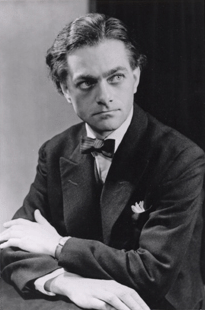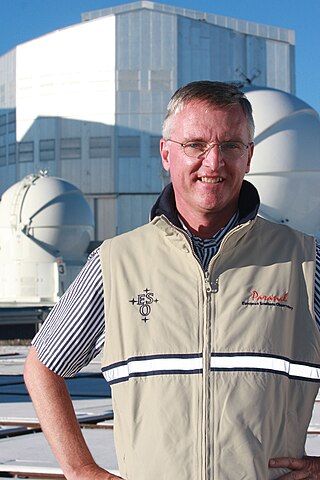Related Research Articles

Andrew Gordon Speedie Pask was a British cybernetician, inventor and polymath who made during his lifetime multiple contributions to cybernetics, educational psychology, educational technology, epistemology, chemical computing, architecture, and the performing arts. During his life he gained three doctorate degrees. He was an avid writer, with more than two hundred and fifty publications which included a variety of journal articles, books, periodicals, patents, and technical reports. He also worked as an academic and researcher for a variety of educational settings, research institutes, and private stakeholders including but not limited to the University of Illinois, Concordia University, the Open University, Brunel University and the Architectural Association School of Architecture. He is known for the development of conversation theory.
Charles François was a Belgian administrator, editor and scientist in the fields of cybernetics, systems theory and systems science, internationally known for his main work the International Encyclopedia of Systems and Cybernetics.
The International Federation for Systems Research(IFSR) is an international federation for global and local societies in the field of systems science. This federation is a non-profit, scientific and educational agency founded in 1980, and constituted of some thirty member organizations around the globe..
The Cybernetics Society is a UK-based learned society that exists to promote the understanding of Cybernetics. The core activity of the Cybernetics Society is the organization and facilitation of scientific meetings, conferences, and social events. The society's website provides information and news items for professionals in the field and the general audience in order to improve the understanding of cybernetics and associated disciplines. Among the activities of the Society are:

George Jiří Klir was a Czech-American computer scientist and professor of systems sciences at Binghamton University in Binghamton, New York.
Mihajlo D. Mesarovic is a Serbian scientist, who is a professor of Systems Engineering and Mathematics at Case Western Reserve University. Mesarovic has been a pioneer in the field of systems theory, he was UNESCO Scientific Advisor on Global change and also a member of the Club of Rome.
Gerard de Zeeuw is a Dutch scientist and Emeritus professor Mathematical modelling of complex social systems at the University of Amsterdam in the Netherlands. He is known for his work on the theory and practice of action research, particularly on the "Problems of increasing competence", "Second order organisational research" and "Three phases of science: A methodological exploration".
Gerrit Broekstra, is a Dutch scientist and professor in the field of organization behavior and systems sciences at the Erasmus Universiteit, Rotterdam, Northwestern University, Chicago, and Nyenrode Business University in the Netherlands.
The International Society for the Systems Sciences (ISSS) is a worldwide organization for systems sciences. The overall purpose of the ISSS is:
to promote the development of conceptual frameworks based on general system theory, as well as their implementation in practice. It further seeks to encourage research and facilitate communication between and among scientists and professionals from various disciplines and professions at local, regional, national, and international levels.
Michael Christopher Jackson OBE is a British systems scientist, consultant and Emeritus Professor of Management Systems and former Dean of Hull University Business School, known for his work in the field of systems thinking and management.

Gerhard Chroust is an Austrian systems scientist, and Professor Emeritus for Systems Engineering and Automation at the Institute of System Sciences at the Johannes Kepler University Linz, Austria. Chroust is an authority in the fields of formal programming languages and interdisciplinary information management.

The American Society for Cybernetics (ASC) is an American non-profit scholastic organization for the advancement of cybernetics as a science, a discipline, a meta-discipline and the promotion of cybernetics as basis for an interdisciplinary discourse. The society does this by developing and applying cybernetics’ concepts which are presented and published via its conferences and peer-reviewed publications. As a meta-discipline, it creates bridges between disciplines, philosophies, sciences, and arts. The ASC is a full member of the International Federation for Systems Research (IFSR).
Robert Vallée was a French cyberneticist and mathematician. He was Professor at the Paris 13 University and president of the World Organization of Systems and Cybernetics (WOSC).
The Society for Mathematical Biology (SMB) is an international association co-founded in 1972 in the United States by George Karreman, Herbert Daniel Landahl and (initially chaired) by Anthony Bartholomay for the furtherance of joint scientific activities between Mathematics and Biology research communities. The society publishes the Bulletin of Mathematical Biology, as well as the quarterly SMB newsletter.

Pieter Timotheus "Tim" de Zeeuw is a Dutch astronomer specializing in the formation, structure and dynamics of galaxies. From 2007 to 2017 he was the director general of European Southern Observatory. He is married to astronomer Ewine van Dishoeck. In May 2022, Leiden University suspended him after an internal review concluded that over several years he repeatedly belittled and insulted women in public and abused his position of power as a professor by threatening to damage their scientific careers; and that in addition to intimidation and inappropriate behavior there was "a component of sexual harassment". The Max Planck Institute for Extraterrestrial Physics announced that they will no longer work with him and the European Southern Observatory banned him from accessing their premises.
Yi Lin, also known as Jeffrey Forrest and Jeffrey Yi-Lin Forrest, is a professor of mathematics, systems science, economics, and finance at Pennsylvania State System of Higher Education (SSHE) and at several major universities in China. Lin has been an active researcher in the field of systems science since mid-1980s and serves as the founder and president of the International Institute for General Systems Studies (IIGSS).
Albert Frederik Gerhard Hanken was a Dutch mathematician, inventor, and Emeritus Professor of systems theory at the University of Twente, known for his contributions to the field of systems theory and social analysis.
The International Academy for Systems and Cybernetic Sciences (IASCYS) is an honor society initially created by the International Federation for Systems Research (IFSR). The academy identifies outstanding scientists in systems and cybernetics and elects them as academicians. The members of the Academy conduct workshops and speak at conferences about advances in the field.
References
- ↑ Martha Vahl (2002), " Gerard de Zeeuw: models, systems, support and research" Archived 2011-07-24 at the Wayback Machine . in: Systems Research and Behavioral Science. John Wiley & Sons, Ltd.
- ↑ Gerard de Zeeuw (2006), "A forgotten message? von Bertalanffy's puzzle" in: Kybernetes, Vol 35 Issue 3/4, pp. 433-440 doi : 10.1108/03684920610653728
- ↑ Gerhard Chroust, 25 Years of the IFSR: A Milestone in the Systems Sciences, retrieved 16 April 2008.
- ↑ Journals Related to Cybernetics by the American Society for Cybernetics. Retrieved 9 June 2008.